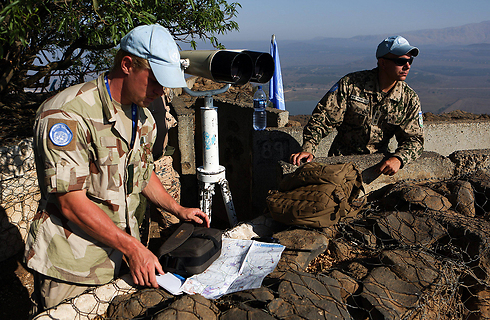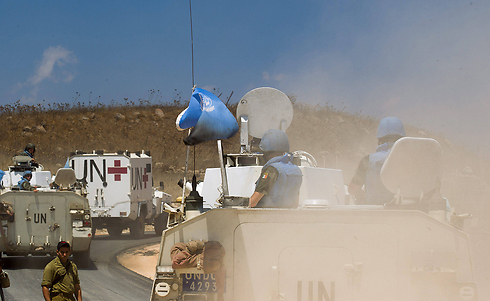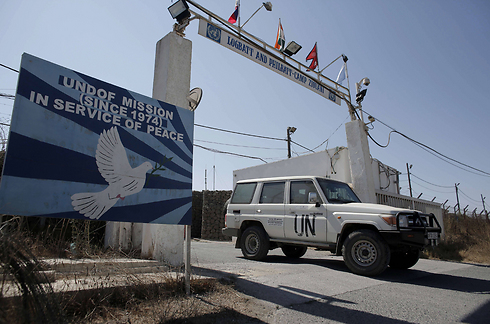Ireland may not replace its 130-person rapid response force in the Golan Heights, where 44 peacekeepers from Fiji are being held by militants, until the United Nations reviews its mandate for its forces there, the defence minister said on Monday.
Islamist fighters involved in Syria's three-year-old civil last week overran a crossing point in the line that has separated Israelis from Syrians in the Golan Heights since the 1973 Yom Kippur War.
Ireland's contingent, which is the most heavily armed element of the 1,200 strong multinational UN mission, was due to be replaced by new Irish troops next month, but Ireland is to freeze the rotation, Defense Minister Simon Coveney said.
"I have made it very clear, that if the UN wants Ireland to continue to support this mission...then we need a full review and we have to get assurances about how the mission will change to adapt to the new realities," Coveney told state broadcaster RTE.
Until the issue is addressed, Ireland is "not going to send any more troops to that mission," he said.
He played down the possibility of pulling the troops out without adequate replacements. "Ireland is still committed to this mission, I want to stress that," he said.
Fiji says it is negotiating the release of its 44 troops. The United Nations says it is not sure where they are being held. The Nusra Front, Syria's affiliate of al Qaeda, says it is holding them because the U.N. force protects Israel.
A senior Gulf official and a rebel commander close to Nusra Front said Qatar was acting as a mediator in talks to secure the Fijians' release.
It was not immediately clear on Monday whether forces loyal to Syrian President Bashar al-Assad had managed to retake control of the Quneitra crossing from the Nusra Front rebels.
The UN peacekeeping force in the area, known as UNDOF, includes 1,223 troops from India, Ireland, Nepal and the Netherlands as well as the Fijians and Filipinos who came under attack last week.
The Filipino blue helmets had been besieged in outposts known as positions 68 and 69 until their rescue from one on Saturday and escape from the other early on Sunday morning. The United Nations said both Syria and Israel helped in the rescue.
The Filipino army chief, General Gregorio Catapang, said his men had defended themselves in defiance of an order from their UN commander, who had told them to surrender their weapons to prevent harm befalling the captured Fijians.
"The UNDOF commander wants to save the Fijians at the expense of the Philippines," Catapang told reporters at the main army base in Manila after speaking to Filipino soldiers on the Golan Heights by Skype.
However, a senior UN official said no order to surrender their weapons had been given to the Filipinos.
The United Nations has announced that the Philippines will pull out of UNDOF. Austria, Japan and Croatia have also pulled their troops out of the force because of the deteriorating security situation as the civil war in Syria reached the Golan.


















